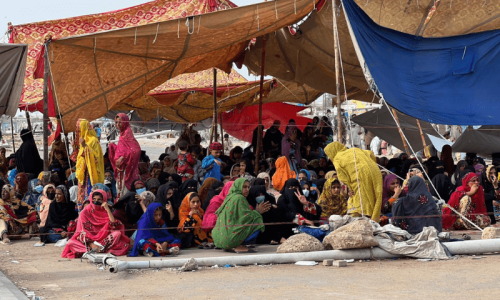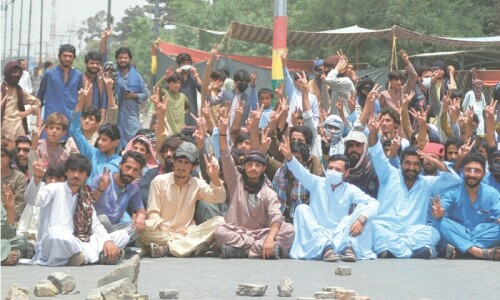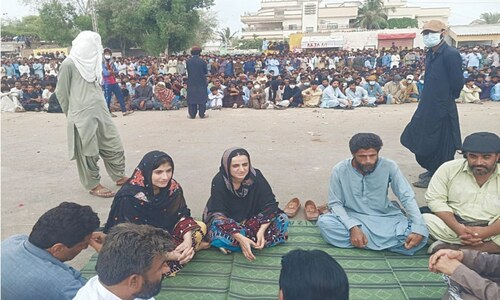AS the stalemate between the state and the Baloch Yakjehti Committee continues, life in many parts of Balochistan remains paralysed. Negotiations have failed to end the impasse, and the protesters have refused to call off the weeklong BYC sit-in in Gwadar. The apparent bone of contention is the BYC’s demand that all detained protesters be freed, and cases against them withdrawn. There seemed to be some progress made on Friday as the government announced that talks with the BYC had been successful. But following clashes in Noshki, it appears that matters are back to square one.
Though the immediate aim of the state should be to peacefully end the protest and listen to the BYC’s demands so that life in Balochistan returns to normal, a longer-term strategy is required to ensure that the province’s people are not frequently compelled to take to the streets because the state refuses to acknowledge their grievances. Sadly, successive governments have failed to earnestly address the actual problem in Balochistan, dealing with it as a law-and-order issue, and refusing to see the underlying political and socioeconomic factors fuelling widespread discontent in the province.
Today, it is Mahrang Baloch who has managed to unite wide cross-sections of Baloch society under the BYC banner, with women at the forefront of the protests. Before her, it was the Haq Do Tehreek and various campaigns for the release of Baloch missing persons that raised the same issues the BYC is highlighting. Has the state bothered to look into the issues beyond superficial talk of enemies stirring up trouble in the province? Hostile foreign elements may well be involved in fuelling militancy, but when the state refuses to engage with peaceful citizens demanding their rights, it pushes more and more people into the embrace of extreme elements.
Those who wield power must listen to Balochistan’s aggrieved voices with compassion, and work to solve the province’s burning issues, chief amongst which are the missing persons and socioeconomic disparity. Speaking at a press conference on Friday not directly related to the BYC sit-in, the federal law minister announced a financial package for families of the missing persons. He said it should not be viewed as compensation, but as ‘support’. The announcement of state financial support to the families of the missing should serve as a symbolic gesture, and temporary relief. The actual issue remains to be tackled: bringing to an end the deplorable practice of enforced disappearances.
Coming back to the protests, if the same colonial methods are employed to stifle the province’s voices, it will have a detrimental effect on national harmony. The state must begin the process of healing by acknowledging past mistakes, and promising to start afresh in Balochistan.
Published in Dawn, August 4th, 2024














































Dear visitor, the comments section is undergoing an overhaul and will return soon.